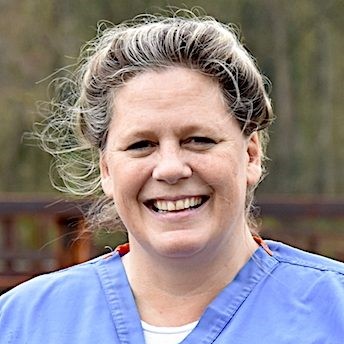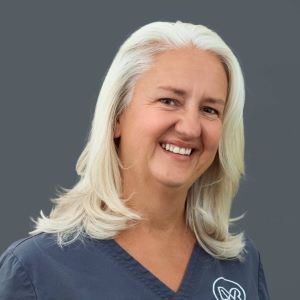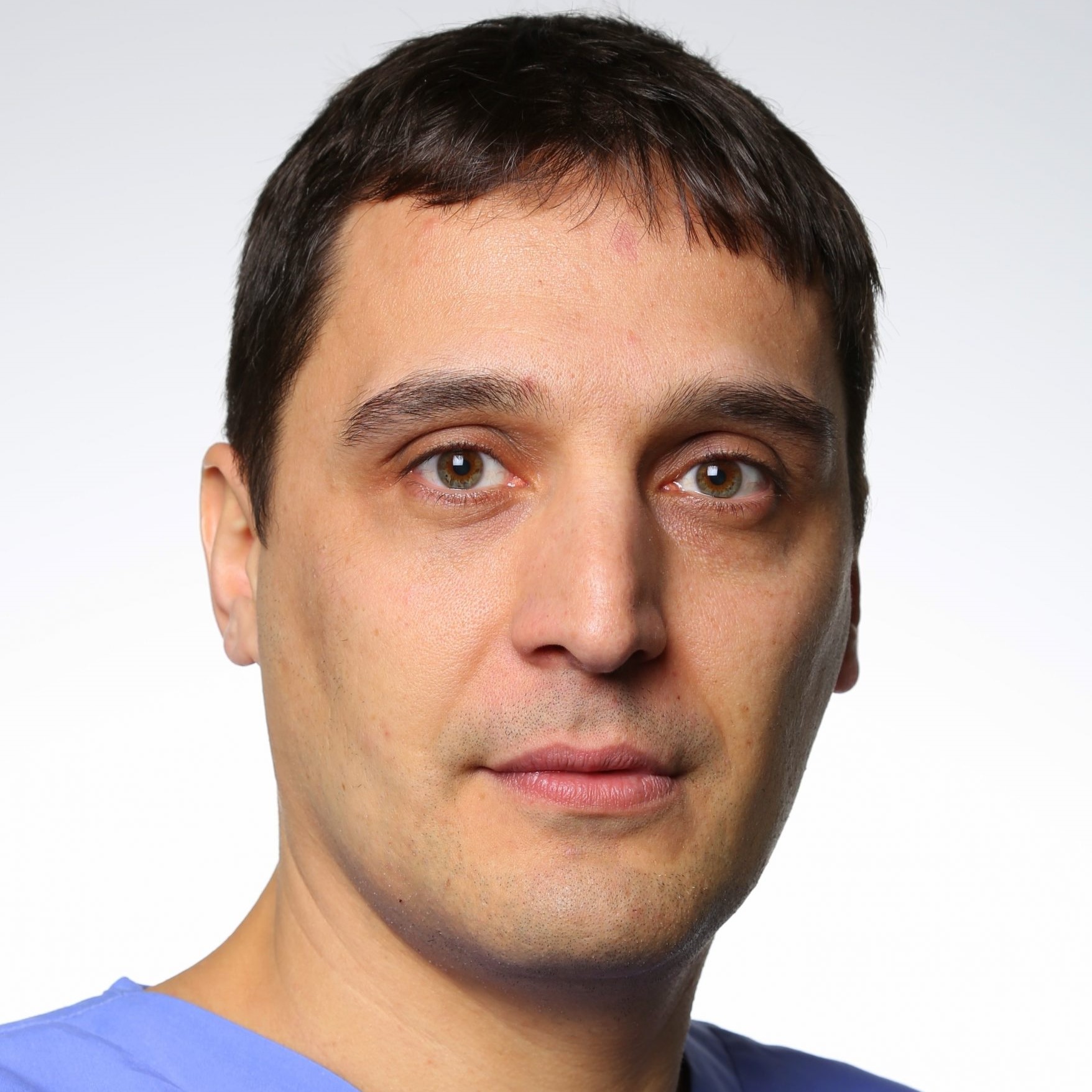The accredited training program for the General Practitioner Certificate, with a fresh approach to veterinary ophthalmology.
To provide the best ophthalmic care to your patients, you must be confident in performing a comprehensive ocular examination and accurately interpreting your clinical findings.
The Small Animal Ophthalmology Online Program is designed to give you a structured and comprehensive diagnostic approach to your patients and up to date treatment and therapeutic options. The specialist authors have ensured the highly practical and image-based program is directly relevant to those applying their knowledge in the clinical setting. Gain the necessary skills and knowledge to feel confident with all your ophthalmology patients.
How does the Online learning program work?
This 100% online CPD program is built around 14 modules. Each includes introductory and summary videos from the specialist author, nine interactive lessons, two case studies, further reading resources and an online forum to discuss cases with your colleagues and the Module’s ophthalmology specialist. Content covers embryology, anatomy and physiology of the eye, ocular pharmacology and therapeutics and the full spectrum of ocular diseases seen in domestic species.
Learn from the global online CPD specialist team
The online learning platform provides exclusive interactive features so you can enjoy your learning experience and develop a logical problem-solving approach to each case. Earn the necessary skills to see your patients in a new light and notice things you were not able to see before. Join world-leading veterinary CPD specialists for a program that will help you rediscover your passion and clinical enthusiasm.
* At the end of the program, you may choose to attend three additional practical attendance modules which will cover different diagnostic techniques and ophthalmic surgical procedures. For those completing the Ophthalmology Online Learning Program, these modules are available at an exclusive price. Currently these Modules are run by the Improve Veterinary Education Team in the United Kingdom. Please register your interest on attending these modules and see the entry requirements on the Optional Practical Attendance Module page.
Confidently investigate, diagnose and
treat your ophthalmic patients
Register your interest to receive Small Animal Ophthalmology Online Learning Program updates.
"*" indicates required fields


This program has been approved for 140 hours of continuing education credit in jurisdictions that recognise RACE approval.
September 2024
Module Speaker:
Lorraine Fleming BVetMed CertVOphthal MRCVS
Key learning objectives:
October 2024
Module Speaker:
Lorraine Fleming BVetMed CertVOphthal MRCVS
Key learning objectives:
November 2024
Module Speaker:
Claudia Hartley BVSc CertVOphthal DipECVO MRCVS
Key learning objectives:
January 2025
Module Speaker:
Claudia Hartley BVSc CertVOphthal DipECVO MRCVS
Key learning objectives:
February 2025
Module Speaker:
Claudia Hartley BVSc CertVOphthal DipECVO MRCVS
Key learning objectives:
March 2025
Module Speaker:
Lorraine Fleming BVetMed CertVOphthal MRCVS
Key learning objectives:
April 2025
Module Speaker:
Pedro Malho DipECVO CES OphtVét DVM MRCVS
Key learning objectives:
May 2025
Module Speaker:
Roser Tetas Pont LV MSc Dip ECVO FHEA MRCVS
Key learning objectives:
June 2025
Module Speaker:
Kerry Smith BVetMed CertVOphthal DipECVO MRCVS
Key learning objectives:
July 2025
Module Speakers:
Kerry Smith BVetMed CertVOphthal DipECVO MRCVS
Key learning objectives:
September 2025
Module Speaker:
Ben Blacklock BVSc DipECVO MRCVS
Key Learning Objectives:
October 2025
Module Speaker:
Pedro Malho DipECVO CES OphtVét DVM MRCVS
Key Learning Objectives:
November 2025
Module Speaker:
Ben Blacklock BVSc DipECVO MRCVS
Key Learning Objectives:
January 2026
Module Speaker:
Pedro Malho DipECVO CES OphtVét DVM MRCVS
Key Learning Objectives:

Claudia acts a consultant in Ophthalmology at Rossdales Equine Hospital. She graduated from Bristol University in 1995, after which she spent 9 years in general practice in large animal, mixed, and small animal practices. Whilst in first opinion practice she gained the RCVS Certificate in Veterinary Ophthalmology and undertook a scholarship at Cambridge University. In 2004, Claudia joined the Animal Health Trust (AHT) and successfully gained the European Diploma in Veterinary Ophthalmology in 2007. She was head of ophthalmology at the AHT between 2009-2015. Claudia works with many charities worldwide, assisting with welfare and zoological ophthalmology cases. She has been an active committee member/chair, published several book chapters, lectured both nationally and internationally on veterinary ophthalmology. She was awarded the Fellowship of the Royal College of Veterinary Surgeons in 2018. In March 2017 Claudia joined Langford Vets, part of the University of Bristol, as Head of Ophthalmology.

Kerry Smith graduated from the Royal Veterinary College, London, in 1994. She spent the next nine years in general practice during which she obtained the RCVS Certificate in Veterinary Ophthalmology. In 2003 she commenced a Residency at the Animal Health Trust, obtaining her European Diploma in 2007. She became a member of the BVA/KC/ISDS Eye Panel in 2008. Since 2006 she has been Senior Clinical Ophthalmologist at the multidisciplinary referral centre, Davies Veterinary Specialists in Hertfordshire. Her interests are corneal surgery, intraocular neoplasia, and veterinary ophthalmology education.

Even as a student at the Royal Veterinary College Lorraine had a real interest in Ophthalmology and completed an elective project on raptor eyes in her final year. After qualifying in 1990 she stayed on for a year as a small animal intern and then went to the University of Bristol for a year as Duphar Fellow in Feline Medicine. This was followed by a short spell in general practice before Lorraine embarked on becoming an Ophthalmologist. Lorraine spent 11 years at the Animal Health Trust, involved in clinical work, research and teaching. She gained her RCVS Certificate in Ophthalmology in 1994 and was awarded a Fellowship by the Institute of Ophthalmology for work on corneal wound healing. Lorraine has been a member of several committees, including the British Association of Veterinary Ophthalmologists and the British Small Animal Veterinary Association (Congress Scientific Programme). In 2004 Lorraine joined the team at Grove Referrals to start an Ophthalmology referral service. This worked well for 14 years, but the AHT called again and after 2 years working back there part-time, she took up the role of Head of Ophthalmology in 2017. Unfortunately, the AHT closed in 2020 but happily, Lorraine has now joined the great team at Dick White Referral, as a Consultant in Ophthalmology. Lorraine has also found time to have 2 children and acquire a house full of dogs and cats. Lorraine has a genuine love of her discipline and continues to teach other vets the joy of Ophthalmology on a regular basis.

Pedro has an interest in eyes and ocular diseases in a variety of animal species. After graduating from UTAD Vila Real, Portugal, Pedro underwent a rotating internship. Pedro successfully completed the Certificat d'Études Supérieures en Ophtalmologie Vétérinaire at École Nationale Vétérinaire de Toulouse–France in 2007/08 followed by an eighteen-month Ophthalmology Internship at the Animal Health Trust, Newmarket, UK. In 2010 Pedro started a European College of Veterinary Ophthalmologists approved residency program at the Animal Health Trust where he was appointed Ophthalmology Clinician after finishing his training. Pedro joined the Ophthalmology team at Pride Veterinary Centre in October 2014. Pedro lectures frequently at national and international veterinary ophthalmology congresses and he is involved in undergraduate and postgraduate teaching. Pedro is also the course director for Improve Internationals GPCert/PgC Small Animal Ophthalmology Online learning programme.

Roser graduated from the Autonomous University of Barcelona in 2006. After graduation, she completed a Master in Veterinary Science and a rotating internship in the same University. In 2010, she moved to the UK to complete an ophthalmology internship and specialist training at the Animal Health Trust, Newmarket. In 2016, Roser moved to the Royal Veterinary College where she is now Senior Lecturer in Veterinary Ophthalmology and Co-head of the Ophthalmology Service.

I graduated from the University of Bristol in 2009 and went straight into mixed general practice in Lancashire, where I spent a lot of time on dairy farms and began to get excited about ophthalmology. In 2011 I moved to Newmarket and undertook a rotating internship position at the Animal Health Trust. Following the internship I embarked on a 3 year ECVO residency program with the comparative ophthalmology unit at the Animal Health Trust. Following my training, I moved to Dick White Referrals, a busy private referral hospital in Cambridgeshire, where I worked for 4 years. I joined the R(D)SVS in 2019 to establish a clinical ophthalmology service and where I hope to be able to help inspire the next generation of veterinary surgeons to find eyes as fascinating as I do! I am an RCVS and EBVS recognised specialist in Veterinary Ophthalmology and I am a BVA/KC/ISDS Eye Scheme panellist.
Full Payment Upfront: Total payable AU$13,500 inc GST
All prices are inclusive of compulsory 10% GST and ISVPS registration & examination fees.
AU $2,000 initial deposit to secure your place. The full balance of fees ($11,500) must be paid one month prior to the program start date (on or before 1 August 2024).
If your enrolment is being submitted within one month of the program start date and you would like to discuss payment options, please contact the Improve team.
All prices are inclusive of compulsory 10% GST and ISVPS registration & examination fees.
Terms and Conditions apply to all bookings.
Please find the terms and conditions here.
You must be a graduated Veterinary Surgeon with a minimum of 1 year clinical experience.
Please check with Improve if you are uncertain regarding your suitability.
It is each delegate’s responsibility to ensure you meet the program entry criteria.
Yes. You are able to enrol in the Ophthalmology Online Learning program no matter where you are located in the world. We can accept delegates across Australia, New Zealand & the Pacific region and can otherwise directly refer you to Improve International in your host region. Please contact us directly on: [email protected] with any questions.
Additionally, all content is pre-recorded so can be viewed at any time of day (i.e. time zone differences will not impact your access to content). However, you may need to allow extra time for tutor responses (as tutors are not based in Australia). If you intend to sit the GPCert qualification through ISVPS, this is online. Please contact the ISVPS directly for further information ([email protected]).
You will spend on average 3-4 hours per week, working through the content.
Some delegates will spend significantly more if engaging regularly on the platform and getting involved in discussions with our specialists.
Preparation of assessments and revising for the final exam is additional depending on your route.
Online modules cannot be deferred without losing the real-time interactive engagement with the Module Specialist Tutor
All resources for each Module remain available for review and engagement if you miss the ‘live’ Module.
The program must be completed within 6 months of the final module. GPCert candidates then have up to four years to satisfy ISVPS assessment requirements and obtain the GPCert.
Yes, all the requirements for the ISVPS examination are online.
Full details of the ISVPS processes are made available after you have registered with the ISVPS. You will be given a login to the Candidates Area after registration. ISVPS also have individual contact points for each country. [email protected] is the Australian contact address and any questions can be sent to this address for follow-up.
For up-to-date exam dates please visit www.isvps.org or email [email protected] for any specific queries
